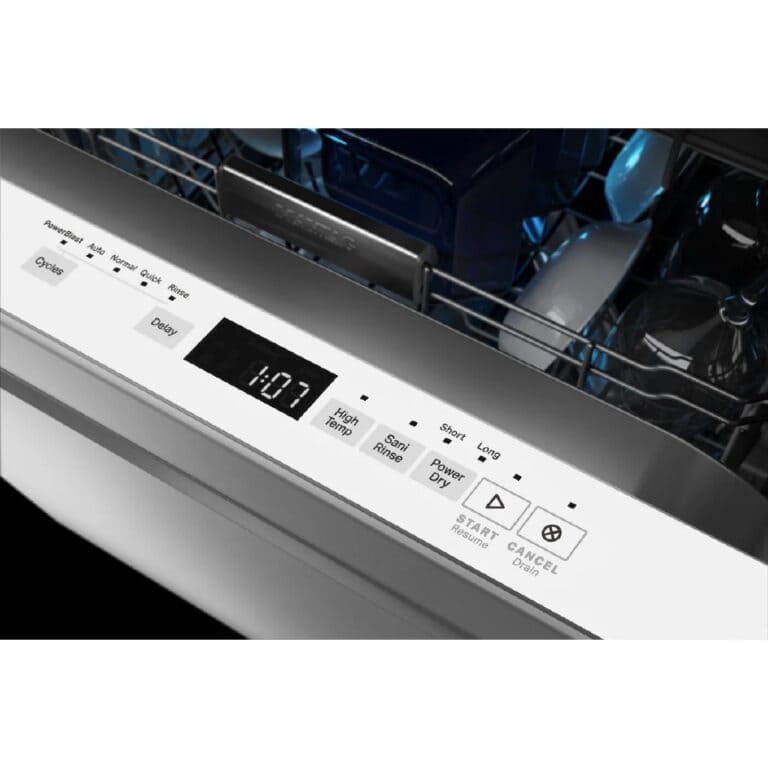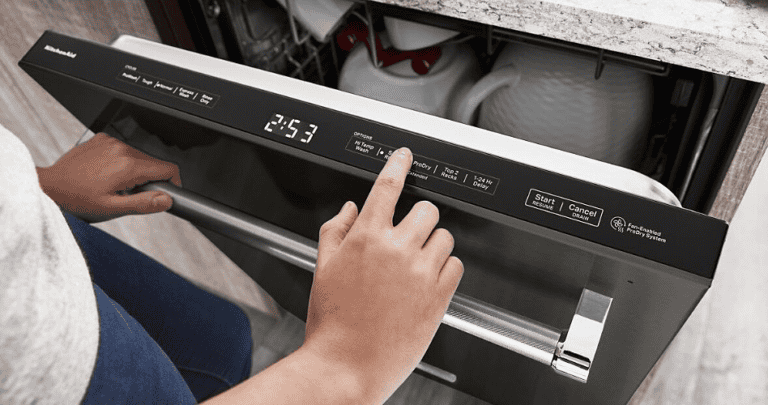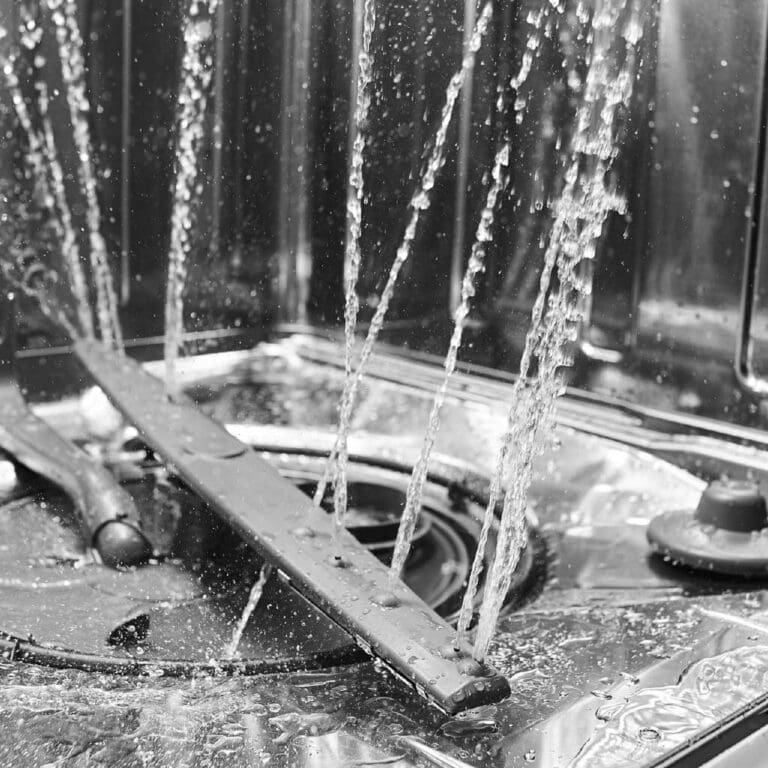Why Do My Dishes Taste Like Soap After the Dishwasher?
Have you ever noticed that your freshly washed dishes come out of the dishwasher smelling or tasting like soap? This common issue can be incredibly frustrating, especially when you’re about to enjoy a meal or a drink and get an unpleasant soapy taste instead. Not only does it ruin the dining experience, but it can also make you question the cleanliness of your dishes.
Several factors can contribute to this problem, from using too much detergent to improper loading techniques. Understanding the root cause is essential to solving this issue and ensuring your dishes are clean and free from any unwanted residue.
In this guide, we’ll explore why this happens and provide practical solutions to help you enjoy your meals without that soapy aftertaste.
Understanding the Soap Taste
The soapy taste on your clean dishes can stem from several common causes:
1. Overloading the Dishwasher: When More Isn’t Merrier

One of the first things I learned is that overloading the dishwasher can be a major culprit. I used to cram as many dishes as possible into the machine, thinking I was saving time and water.
In reality, I was setting myself up for a soapy surprise. When dishes are too close together, water and detergent can’t circulate properly, leaving residues clinging to surfaces.
Here’s a quick list to avoid this:
- Give each dish its space.
- Avoid stacking items directly on top of each other.
- Ensure water can flow freely between plates and utensils.
By giving your dishes some breathing room, you’re more likely to get a squeaky-clean result—minus the squeak of soap.
2. Detergent Dilemmas: Finding the Goldilocks Zone
The amount of detergent you use is more crucial than you might think. I’ve fallen into the trap of thinking that more detergent equals cleaner dishes. But too much detergent can actually leave a stubborn film that doesn’t rinse off completely. On the flip side, using too little might not clean your dishes thoroughly, leading to a different kind of aftertaste.
I found this simple table helpful for finding that Goldilocks zone of detergent usage:
| Dishwasher Size | Detergent Amount |
| Small | 1-2 teaspoons |
| Medium | 1-1.5 tablespoons |
| Large | 2 tablespoons |
If you adhere to these amounts, you’re likely to achieve a balance between clean dishes and minimal soapy residue.
3. Water Quality: The Unsung Hero or Villain
Another factor that often flies under the radar is water quality. Hard water, rich in minerals like calcium and magnesium, can prevent detergent from rinsing off fully. This was a game-changer for me. I used to live in an area with hard water, and no matter how much I adjusted my detergent usage, the soap taste lingered.
If you suspect your water might be the issue, consider these solutions:
- Water softeners: Install a whole-house water softener to tackle the root of the problem.
- Rinse aids: Use a rinse aid specifically designed to combat hard water.
- Vinegar rinse: Run an empty dishwasher cycle with a cup of white vinegar to help break down mineral deposits.
4. Food Residues: The Silent Saboteurs
I’ve also discovered that leftover food residues can mix with detergent, amplifying that soapy flavor. It’s like having a secret ingredient that you definitely didn’t ask for. Even a small amount of grease or food particles can cling to your dishes, creating an ideal environment for flavor transfer.
Here’s what I do to combat this:
- Pre-rinse stubborn dishes before loading them into the dishwasher.
- Scrape off excess food into the trash or compost bin.
- Regular maintenance of the dishwasher filter to ensure it’s free from gunk.
By keeping food residues at bay, you’re giving your dishwasher a fighting chance to do its job without unwanted flavors tagging along.
5. Proper Loading Techniques
Proper loading techniques can make a big difference in how well your dishwasher cleans. To avoid residue buildup, make sure dishes are not overcrowded. Leave space between items to allow water and detergent to reach all surfaces. Plates and bowls should face downwards, so water can wash over them effectively.
When it comes to specific dishware, consider these placement tips: Place larger items like pots and pans on the bottom rack, angled away from the spray arms.
Smaller items like cups, glasses, and bowls should go on the top rack to prevent breakage and ensure they’re cleaned properly. Utensils should be placed in the silverware basket with handles facing down for thorough cleaning and to prevent them from nesting together.
Some items should never go in the dishwasher. Avoid washing sharp knives, non-stick cookware, and delicate glassware. These can get damaged by the dishwasher’s heat or intense cleaning cycle.
6. The Final Rinse: Ensuring a Fresh Finish
A proper rinse cycle is the finishing touch that ensures your dishes come out fresh and clean. I’ve had times when I rushed through a cycle, only to find that the rinse wasn’t thorough, leaving that dreaded soap taste. Ensuring the final rinse is complete and not skipping any steps can make all the difference.
Consider these tips:
- Check the rinse cycle settings to ensure it runs fully.
- Use hot water for the rinse, as it helps dissolve and wash away soap residues more effectively.
- Inspect the dishwasher after the cycle to ensure it’s draining properly and not
| You May Also Like: Why Does My Dishwasher Shut Off After a Few Minutes? |
Can Dishwasher Soap Residue Be Harmful to Health?
Yes, dishwasher soap residue can be harmful to health if ingested or inhaled in large quantities. Many dishwasher soaps contain chemicals that can be toxic if consumed, leading to symptoms such as nausea, vomiting, and abdominal pain.
Inhaling the fumes from dishwasher soap residue can also irritate the respiratory system and cause respiratory distress in some individuals.
It’s important to always ensure that dishes are thoroughly rinsed after being washed in the dishwasher to remove any soap residue. Using eco-friendly or natural dishwasher soaps can also help reduce the risk of harmful residue being left on dishes.
Additionally, keeping dishwasher soap out of reach of children and pets is essential to prevent accidental ingestion or exposure. Regular cleaning and maintenance of the dishwasher can also help prevent soap residue buildup.
Cleaning Your Dishwasher Regularly
Cleaning your dishwasher regularly is key to maintaining its efficiency and extending its lifespan. Over time, food particles, soap scum, and mineral deposits can accumulate, affecting its performance. To clean the interior, start by wiping down the door edges, gasket, and the areas around the door. Remove any visible debris and then run a cleaning cycle with a dishwasher-safe cleaning solution.
Don’t forget about the filters! Checking and cleaning the filters monthly can prevent clogs and improve water drainage. Simply remove the filter from the bottom of the dishwasher, rinse it under warm water, and use a soft brush to remove any stubborn debris. This step ensures that your dishwasher continues to clean dishes effectively without any blockages.
When it comes to cleaning products, consider using natural cleaners like vinegar and baking soda. These alternatives are not only eco-friendly but also less harsh on your dishwasher’s components. Commercial products can sometimes be full of chemicals, which might cause long-term damage.
| Also Read: Why Does My Dishwasher Keep Tripping the Breaker? |
Final Thoughts
In conclusion, if your dishes taste like soap after being washed in the dishwasher, it could be due to using too much detergent, using the wrong type of detergent, or residue buildup in the dishwasher.
It’s important to rinse dishes thoroughly, use the correct amount and type of detergent, and regularly clean and maintain the dishwasher to prevent soap residue.





